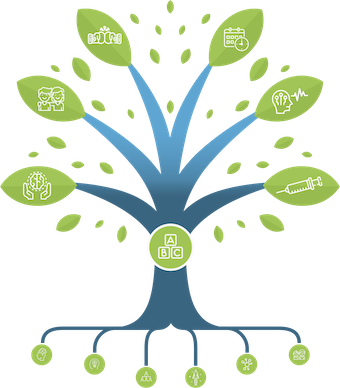Women, hormones and migraine: an overview
Research has shown that women are 3 times more likely to have migraines than men. This is because hormones are linked to migraines.
What are the links between hormones and migraines?
There have been lots of medical research regarding hormones and their effect on migraines. Women tend to have more fluctuations in hormones such as estrogen which has been linked to triggering migraines.
What does estrogen have to do with periods and migraines?
Serotonin is a small chemical (neurotransmitter) that is produced by nerve cells. Research has shown that serotonin plays an important role in migraines. Estrogen has been linked to increased production of serotonin and preventing the breakdown of serotonin. Estrogen drops in the middle of the menstrual, at ovulation, and at the end of the cycle during the period. This causes serotonin to drop and triggers a migraine attack.
Please refer to the menstrual migraine section for more details (See this post)
If you’re interested by contraception and migraine, read here. (See this post)
What happens to estrogen levels during pregnancy?
The estrogen levels are higher during pregnancy. Often times, women have less frequent headaches during pregnancy. (See this post)
What happens to estrogen levels during menopause?
During the transition to menopause, hormone levels rise and fall headaches can be worse. After some time, the estrogen levels becomes stable and headaches may become less frequent or disappear completely. (See this post)
REFERENCES
Todd C, Lagman-Bartolome AM, Lay C. Women and Migraine: The role of Hormones. Curr Neurol Neurosci Rep. 2018;18(7):42.
Petrovski BE, Vetvik KG, Lundquist C, Eberhand-Gran M. Characteristics of menstrual versus non-mentrual migraine during pregnancy: A longitudinal population-based study. Journal of Headache and Pain. 2018;19:27-33.
Post#501
Categories
THE MIGRAINE TREE
- BRANCHES
- ACUTE TREATMENTS
- DEVICES AND NEUROMULATIOIN
- PREVENTIVE TREATMENTS
- PROCEDURES AND INJECTIONS
- SELF-CARE AND LIFESTYLE
- SOCIAL LIFE
- TRUNK
- ROOTS
OTHER CATEGORIES




